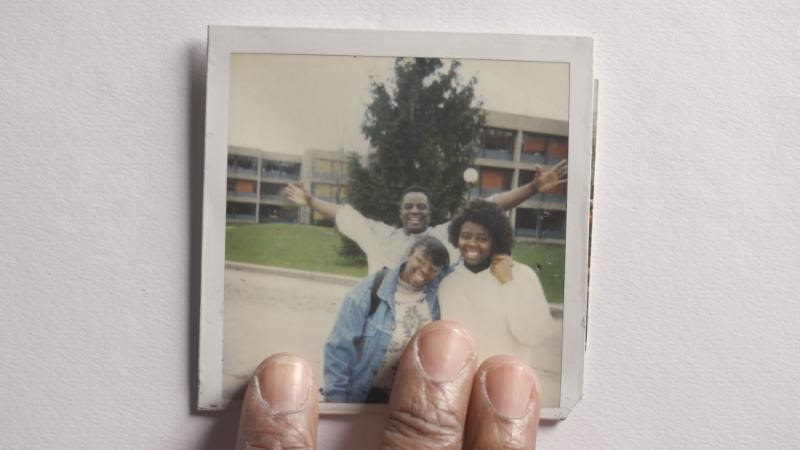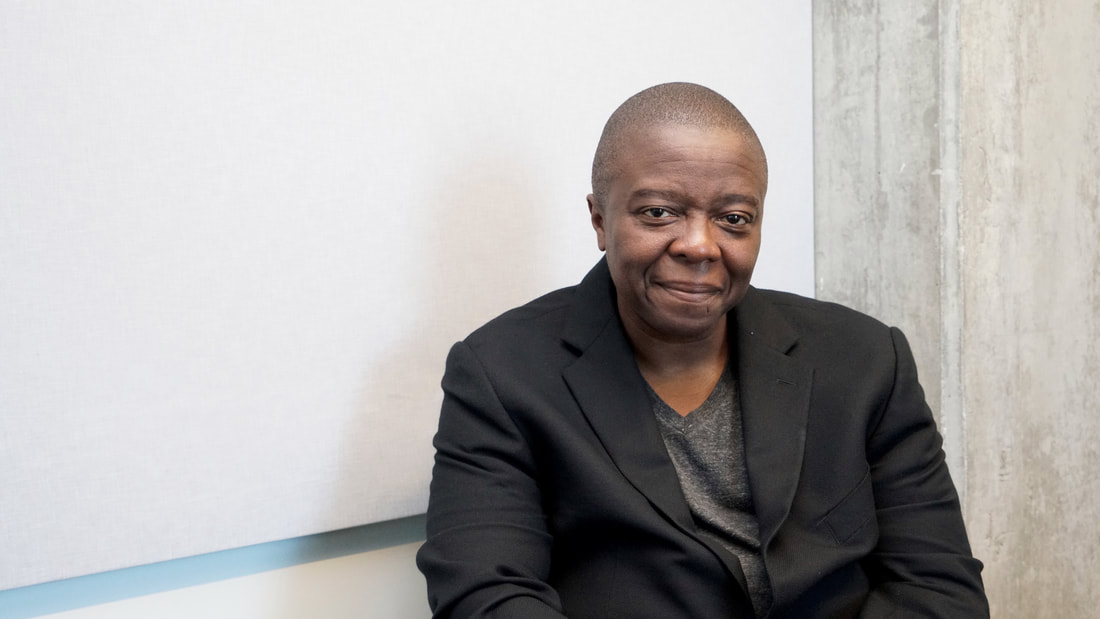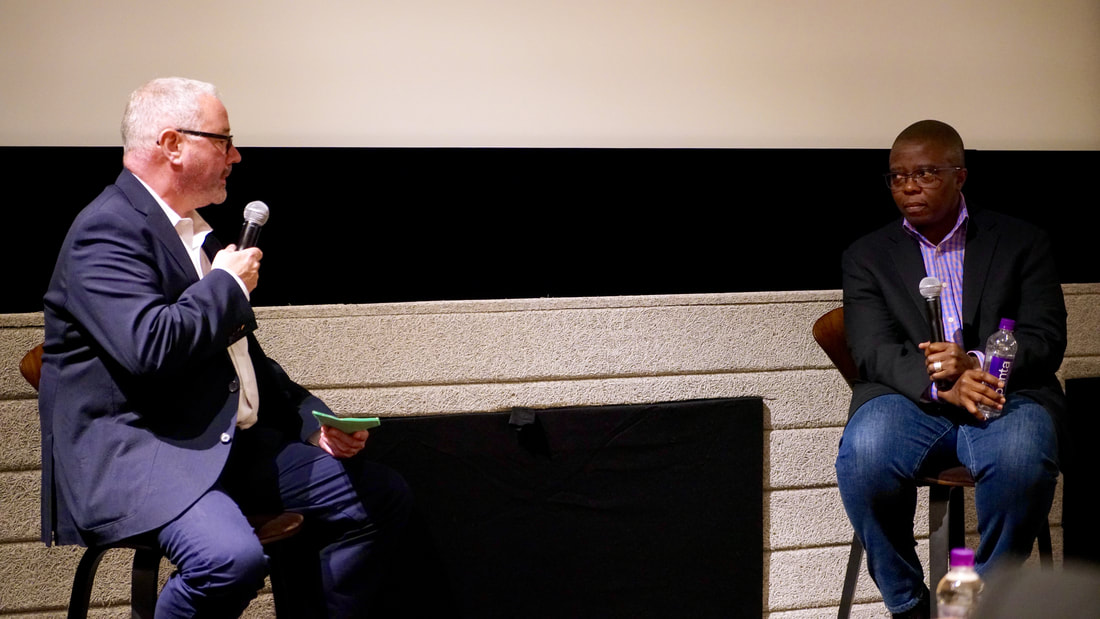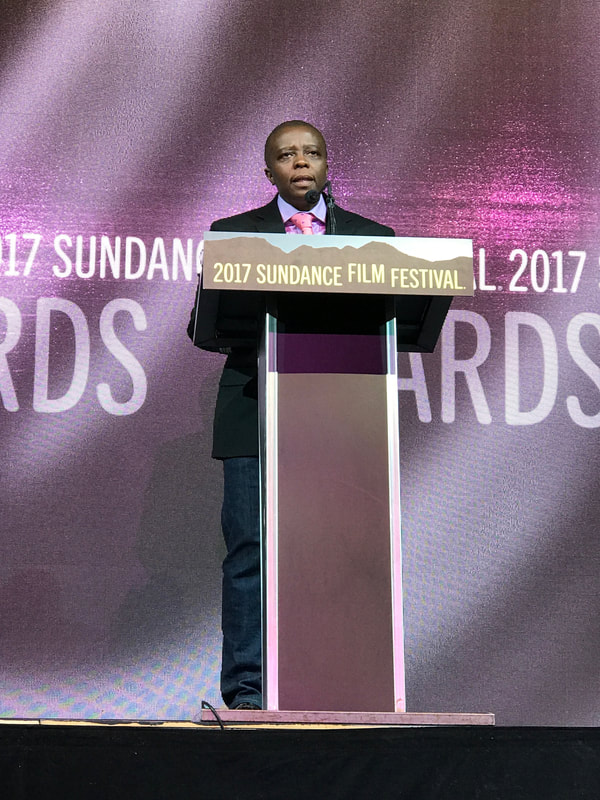New on Netflix: 'Strong Island' a true story of grief, race and a murder that went unpunished9/16/2017 Director Yance Ford documents the personal impact of his brother's death, and what his killing says about American society Update: Strong Island has earned a spot on the Oscar documentary shortlist There have always been two Americas -- the land of the free, and the home of the enslaved. A country where justice is blind, a country where justice sees only too clearly a distinction between races. It is this America of intrinsic contradiction -- for whom one set of standards applies to white people and another to people of color -- that forms the backdrop to Yance Ford's powerful and personal documentary Strong Island. Empathy is not the point here... I don't need a pat on the back. The film began streaming on Netflix this weekend, after collecting awards at multiple film festivals, including Sundance, Full Frame and Sheffield. In a controlled tone that serves to underscore a feeling of muted outrage, Ford explores the circumstances around the death of his older brother, William Ford Jr., who was shot to death in 1992 at an auto body shop on Long Island, near the Ford family home. The shooter was a white man, Mark Reilly, an employee at the shop where William had a car being repaired. Weeks earlier they had argued over the repair job, and William suspected the mechanic of speaking disrespectfully about his mother. When he returned to collect the vehicle, a verbal altercation ensued. The two retreated into a garage whereupon Reilly immediately fired a weapon, mortally wounding William, who was unarmed. Evidence presented in the film suggests investigators believed Reilly's actions were justified because he was fearful of Ford. As Yance Ford states in the film, "The police had turned my brother into the prime suspect in his own murder." The district attorney's office made what was likely a half-hearted presentation before a grand jury composed entirely of white people. They failed to indict Reilly, who went free. "When a white person kills a black man in America, the killer often faces no legal consequences," concluded a report published by the Marshall Project last month. "In one in six of these killings, there is no criminal sanction, according to a[n] examination of 400,000 homicides committed by civilians between 1980 and 2014. That rate is far higher than the one for homicides involving other combinations of races." Ford referred to the Marshall Project findings when we sat down to talk about his film at Netflix offices in Hollywood last week. The inescapable conclusion is that a black person's race can prove reason enough for a white person to deprive them of their life. "This violence against black people is generations old and I think that young people, when they see [the film], it helps them to understand how this needs to be deconstructed, how it needs to be destroyed, how the irrational fear of black people is something that has always been the underpinning for self-defense laws," Ford told us. "My concern is that Strong Island introduces the need for us to interrogate this 'reasonable fear.' We have forgotten that the standard is reasonable fear, not simply fear," Ford continued. "We have forgotten that it is incumbent upon the district attorney's office and the police department to do adequate investigations and presentations before grand juries because the person who's on the other side of this 'each story has two sides' is dead. And the dead cannot speak for themselves." Ford's parents had left the Jim Crow South to build a life in a place that ostensibly offered some refuge from systemic racism. The film shows the toll of William's death on his family members -- the shattering grief, the guilt at having failed to somehow shield him from his fate, the knowledge that William's life counted for so little when measured against the inherent privileges of white power. The director made the choice not to include any image of William's killer in the film. I asked Ford if that was because, in essence, Mark Reilly's appearance is immaterial; what's important is what he embodies -- impunity. "Exactly, exactly," Ford responded. "And that's why he's not in the film. He doesn't need to be in the film. This is not a film about offering him redemption or forgiveness. I think he should seek that from whatever god he worships. The film is about this series of events that he sparked. And it's true that for black Americans for whom the criminal justice system continues to fail that on a very basic level white Americans can act with impunity and do things that a black American would spend many, many years in jail for, if not a lifetime." The film is never more heartbreaking than when Yance's mother describes the way she was treated by police after her son's killing -- with utter indifference. "I did not feel that we were received as parents of a victim," she recounts. "No officer would speak to me. No officer would look at me." Despite the tragedy endured by the Fords, the director told us he is not seeking words of comfort from viewers. "Empathy is not the point here," he said. "I don't need a pat on the back. I don't need someone to -- and black America frankly doesn't need empathy. Black America needs people who have access to power to use that power to make change, because there is a clear discrepancy between the access to power and the effectiveness or rather the reception of the message. If you want to do something in response to this film, don't feel sorry for me. I don't need your pity. Empathy is nice. Save it for the dog who needs to be adopted. You take your privilege and you use it to make change." In the 25 years since William Ford Jr.'s killing, many more unarmed black men have been killed by white people -- police officers or private individuals -- who escaped punishment. The deaths of Michael Brown in Ferguson, Missouri and Trayvon Martin in Sanford, Florida are among the most notorious examples. "In almost 17 percent of cases when a black man was killed by a non-Hispanic white civilian over the last three decades, the killing was categorized as justifiable, which is the term used when a police officer or a civilian kills someone committing a crime or in self-defense. Overall, the police classify fewer than 2 percent of homicides committed by civilians as justifiable," the Marshall Project study reported. The study went on to note, "A homicide can be ruled self-defense when the killer faced no actual threat but had a reasonable belief he or she did. That is where irrational fear can come into play. Police, prosecutors and juries may be apt to give killers the benefit of the doubt in situations when they were faced with someone who seemed 'dangerous.'" Ford feels an unenviable sense of kinship with families of loved ones who fell prey to a white assailant's feeling of fear. "I think the communities who are dealing with this and families who are dealing with this my hope for them is that they see an affirmation of their experience in the film," said Ford, "that they know that they are not crazy, that they know what the narrative is going to be because the narrative has not changed and that they also are not just gathered around and supported in the immediate aftermath but that we think about how they're going to be 25 years from now. That's my hope."
|
AuthorMatthew Carey is a documentary filmmaker and journalist. His work has appeared on Deadline.com, CNN, CNN.com, TheWrap.com, NBCNews.com and in Documentary magazine. |
- Home
- News
- Videos
-
Galleries
- 2019 Tribeca Film Festival
- Full Frame Documentary Film Festival
- 2019 SXSW Film Festival
- SXSW 2018 Gallery
- 2019 Sundance Film Festival
- Outfest 2018 Photo Gallery
- Outfest 2017
- Sundance 2018 Photos
- 2017 LA Film Festival
- 2017 Cannes Film Festival
- Tribeca Film Festival 2017
- SXSW 2017 Gallery
- 2017 Berlin Film Festival
- Sundance 2017 Gallery
- 2016 Los Angeles Film Festival
- Cannes Film Festival 2016
- SXSW 2016 Gallery
- Berlinale 2016 Gallery
- Sundance 2016 Gallery
- Filmmaker Gallery
- About
- Contact
Proudly powered by Weebly
- Home
- News
- Videos
-
Galleries
- 2019 Tribeca Film Festival
- Full Frame Documentary Film Festival
- 2019 SXSW Film Festival
- SXSW 2018 Gallery
- 2019 Sundance Film Festival
- Outfest 2018 Photo Gallery
- Outfest 2017
- Sundance 2018 Photos
- 2017 LA Film Festival
- 2017 Cannes Film Festival
- Tribeca Film Festival 2017
- SXSW 2017 Gallery
- 2017 Berlin Film Festival
- Sundance 2017 Gallery
- 2016 Los Angeles Film Festival
- Cannes Film Festival 2016
- SXSW 2016 Gallery
- Berlinale 2016 Gallery
- Sundance 2016 Gallery
- Filmmaker Gallery
- About
- Contact





 RSS Feed
RSS Feed